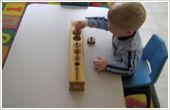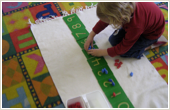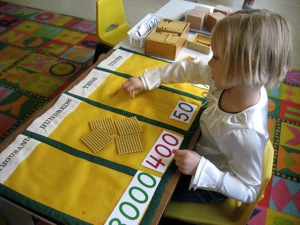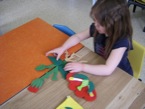
✹ The Sunrise Promise ✹







Montessori classes bring children of mixed ages together.




To accommodate the needs of individual learners, our classrooms include curriculum to cover the entire span of grade and ability levels.




Our Graduates consistently obtain higher scores than those required for their age level.




DISCIPLINE:
The development of self-discipline is a basic part of our curriculum. We instruct our children on the common rules of courtesy, respect and etiquette and teach them communication and conflict resolution skills. Our goal is to help the children become self-disciplined.
When a behavior problem arises, we remind the children of the particular rule governing their actions and encourage them to “think about it and talk it over”. If the misbehavior is extreme the child will be taken out of the class until he/she regains control. All steps will be carried out in a firm, but respectful and loving manner.

About Montessori








A wide variety of activities are included in our curriculum

